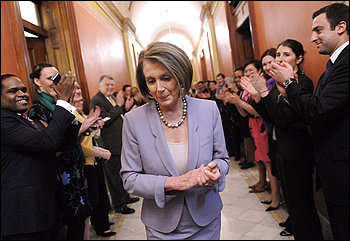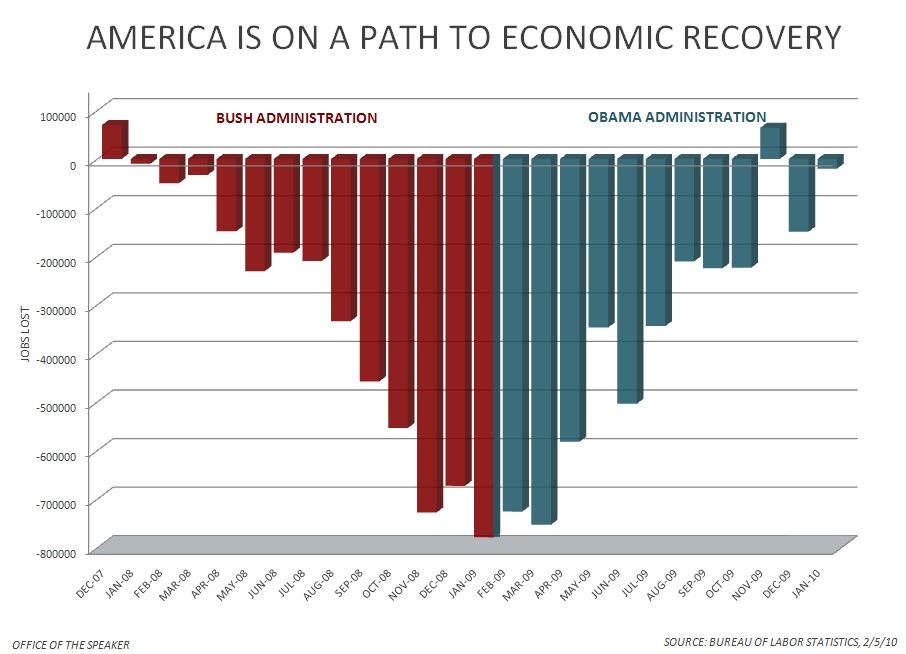“Last week, Congress decided it would not confront Too Big To Fail, the single gravest threat to our collective financial security. But there are still several key Wall Street reforms worth fighting for–reforms that must be enacted before the next crisis hits, with or without a big bank break-up. And fortunately, key Senators have authored amendments dealing with each one.” In HuffPo, Zach Carter delineates the most worthwhile progressive amendments to financial reform still up for debate in the Senate. A good encapsulation of the state of play.
Category: Congress
Thune Unleashes a Corker.
“‘I think he’s a guy who’s willing to get down into the weeds,’ said South Dakota Sen. John Thune, who is No. 4 in GOP leadership. ‘Because he immerses himself in that and understands it so well — the positions he adopts may not always be the ones that everyone else in our conference comes to.’“
Hmmm, that explains a lot. In trying to explain why Sen. Bob Corker has been bucking the GOP line on financial reform of late, Sen. John Thune gaffe-tastically concedes that it’s because Corker actually tries to figure out what he’s talking about. “When Sen. Richard Shelby of Alabama started working on a draft outline of a GOP alternative to the Democrats’ bill, Corker said he didn’t plan on spending ‘any time’ on it. ‘At the end of the day — look it’s a messaging piece, isn’t it?’ Corker smiled.“
Heir to the La Follettes.
“There’s got to be more to life than explaining Senate procedures to angry constituents or begging Blue Dogs to do what they ought to do by rote.” After forty fighting years in the House, David Obey — formidable Wisconsin progressive, master of both legislative arcana and the harmonica, and powerful Chair of the Appropriations Committee — announces his retirement at the end of this term.
Obey’s exactly the type of guy you want in Congress — he’s got his priorities straight and was never afraid to fight for them — and he will be missed. “He pondered retirement before, but stayed on because he was angry at what he saw as the ‘arrogance’ of the second President Bush. ‘I was determined to outlast him,’ he said.“
Update: Chairman Obey’s full official statement is definitely worth a read. “I am, frankly, weary of having to beg on a daily basis that both parties recognize that we do no favor for the country if we neglect to make the long-term investments in education, science, health, and energy that are necessary to modernize our economy…I do not want to be in a position as Chairman of the Appropriations Committee of producing and defending lowest common denominator legislation that is inadequate to that task and, given the mood of the country, that is what I would have to do if I stayed.
I am also increasingly weary of having to deal with a press which has become increasingly focused on trivia, driven at least in part by the financial collapse of the news industry and the need, with the 24-hour news cycle, to fill the air waves with hot air. I say that regretfully because I regard what is happening to the news profession as nothing short of a national catastrophe which I know pains many quality journalists as much as it pains me. Both our professions have been coarsened in recent years and the nation is the loser for it.“
Madam Speaker.

“Late one night in January, as congressional leaders and White House officials tried to narrow their differences on the cost of the health-care bill, Rep. Henry A. Waxman (D-Calif.) gave Obama credit. ‘I don’t speak for the House, but this is a good offer,’…’Henry, I agree with you about two things,’ Pelosi interjected. ‘The president put out some numbers, and, number two, you don’t speak for the House.’“
The WP‘s Paul Kane profiles the inimitable Speaker of the House, Nancy Pelosi. “Some historians list her alongside Rayburn and his successor, John W. McCormack, as among the most influential speakers in the annals of Congress.” (What, no love for Joe Cannon? C’mon now, American history doesn’t start in 1945.)
In any case, from my ringside seat here in the belly of the beast, it’s pretty clear: Speaker Pelosi gets things done. “After Scott Brown’s special-election victory…some pushed for a scaled-down version of health-care legislation to draw Republican support. Pelosi balked. In a moment that has come to define her speakership, Pelosi mocked a scaled-down bill as ‘Eensy Weensy Spider’ health care.”
HCR: Where’s My Stuff?
Since I was talking to old friends on Facebook yesterday and realized once again that few folks outside of DC have a good sense of what’s actually in the recently passed health care bill, here’s a handy interactive graphic that delivers the what-for for the first year. There’s also a handy embed code there for wider distribution (but sorry, the death panel protocols are still classified. You’ll learn them when they come for you.)
Blunt Rebuke.
“‘Access for kids who have pre-existing conditions, who would be against that?’ Blunt asked a group of health care professionals in Springfield, MO. ‘But access for adults who’ve done nothing to take care of themselves, who actually will have as I just described every incentive not to get insurance until the day that you know that you’re going to have medical expenses–that’s a very different kind of story.‘”
Thanks, Roy! Republican congressman and ostensible chair of the “GOP Health Care Task Force” Roy Blunt actually comes out in favor of repealing the ban on denying coverage for pre-existing conditions, one of the few provisions in the recent health care law that usually garnered bipartisan support. For its part, leukemia declined to comment.
Here’s to our Health.

So, as you may have heard, the House passed the health care bill 219-212 late last night. It was a long and busy weekend, and a long and busy week is ahead, formulating the death panels and whatnot. Still, we’ve been talking about this bill since I got here last July, so it feels quite good to finally get this done. Now, let’s make it better. (Pic via here.)
Update: Here’s what goes into effect right away, and here’s what it means for you.
On Jobs and the Jobless.

Of course, this is not to say we’re anywhere near the clear on the jobs front. Not only is there some frightening new data around about the length of unemployment in this downturn, The Atlantic‘s Don Peck makes a compelling case about how this new jobless era will transform America: “The unemployment rate hit 10 percent in October, and there are good reasons to believe that by 2011, 2012, even 2014, it will have declined only a little…The worst effects of pervasive joblessness–on family, politics, society–take time to incubate, and they show themselves only slowly. But ultimately, they leave deep marks that endure long after boom times have returned.“
The Old School Dealmakers.
“[L]ong before Hollywood discovered the Texan, he cut a wide swath through the House, always playing the roguish ladies’ man and macho militarist…[His] frequent, much more sober-styled partner was Democratic Rep. John Murtha, the Pennsylvania powerhouse who chaired the defense subcommittee so important to CIA funding for the Afghan cause. And the fact that both have died now within days of each other punctuates the end of a major chapter for the House left behind.“
Charlie Wilson, 1933-2010, and John Murtha, 1932-2010.
The Wages of Citizens United: The $$$.
“The Chamber spent much of its money in 2009 on campaigns that worked — it scared the Senate away from considering a version of the Waxman-Markey cap-and-trade legislation, and an argument can be made that its cutting ads on health care (with money taken from some insurance companies) helped to undercut support for the legislation.” You think? In a shape-of-things-to-come moment even before Citizens United goes into effect, the Chamber of Commerce outspent both political parties in 2009.
“According to The Center for Responsive Politics, the U.S. Chamber of Commerce and its national subsidiaries spent $144.5 million in 2009, far more than the RNC and more than double the expenditures by the DNC.” But corporate spending isn’t a problem or anything.
